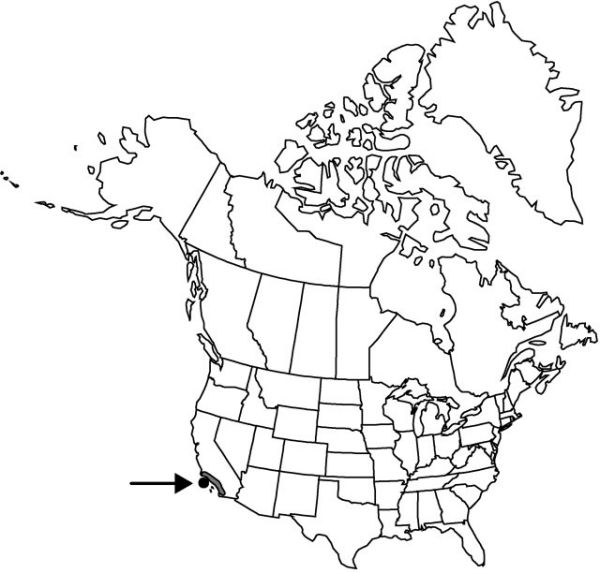Difference between revisions of "Lilium humboldtii subsp. ocellatum"
Aliso 9: 195. 1978.
FNA>Volume Importer |
FNA>Volume Importer |
||
| Line 10: | Line 10: | ||
|name=Lilium bloomerianum var. ocellatum | |name=Lilium bloomerianum var. ocellatum | ||
|authority=Kellogg | |authority=Kellogg | ||
| + | |rank=variety | ||
|publication_title=Proc. Calif. Acad. Sci. | |publication_title=Proc. Calif. Acad. Sci. | ||
|publication_place=5: 88. 1873 | |publication_place=5: 88. 1873 | ||
| Line 16: | Line 17: | ||
|name=Lilium fairchildii | |name=Lilium fairchildii | ||
|authority=M. E. Jones | |authority=M. E. Jones | ||
| + | |rank=species | ||
}} {{Treatment/ID/Synonym | }} {{Treatment/ID/Synonym | ||
|name=Lilium humboldtii var. magnificum | |name=Lilium humboldtii var. magnificum | ||
|authority=Purdy | |authority=Purdy | ||
| + | |rank=variety | ||
}} {{Treatment/ID/Synonym | }} {{Treatment/ID/Synonym | ||
|name=Lilium humboldtii var. ocellatum | |name=Lilium humboldtii var. ocellatum | ||
|authority=(Kellogg) Elwes | |authority=(Kellogg) Elwes | ||
| + | |rank=variety | ||
}} {{Treatment/ID/Synonym | }} {{Treatment/ID/Synonym | ||
|name=Lilium ocellatum | |name=Lilium ocellatum | ||
| − | |authority= | + | |authority= |
| + | |rank=species | ||
}} | }} | ||
|hierarchy=Liliaceae;Lilium;Lilium humboldtii;Lilium humboldtii subsp. ocellatum | |hierarchy=Liliaceae;Lilium;Lilium humboldtii;Lilium humboldtii subsp. ocellatum | ||
| Line 40: | Line 45: | ||
|elevation=200–1800 m | |elevation=200–1800 m | ||
|distribution=Calif. | |distribution=Calif. | ||
| − | |discussion=<p>Subspecies ocellatum is rather similar to < | + | |discussion=<p>Subspecies ocellatum is rather similar to <i></i>subsp.<i> humboldtii</i>, but the yellowish sepals and petals with widely margined spots, lighter-colored pollen, and purplish bulb with notched scales are distinctive. In addition to the mainland, it occurs on the larger northern Channel Islands, where it is the only native lily (C. F. Smith 1976).</p> |
|tables= | |tables= | ||
|references= | |references= | ||
| Line 49: | Line 54: | ||
-->{{#Taxon: | -->{{#Taxon: | ||
name=Lilium humboldtii subsp. ocellatum | name=Lilium humboldtii subsp. ocellatum | ||
| − | |||
|authority=(Kellogg) Thorne | |authority=(Kellogg) Thorne | ||
|rank=subspecies | |rank=subspecies | ||
| Line 64: | Line 68: | ||
|publication year=1978 | |publication year=1978 | ||
|special status= | |special status= | ||
| − | |source xml=https://jpend@bitbucket.org/aafc-mbb/fna-data-curation.git/src/ | + | |source xml=https://jpend@bitbucket.org/aafc-mbb/fna-data-curation.git/src/f50eec43f223ca0e34566be0b046453a0960e173/coarse_grained_fna_xml/V26/V26_307.xml |
|genus=Lilium | |genus=Lilium | ||
|species=Lilium humboldtii | |species=Lilium humboldtii | ||
Revision as of 20:48, 16 December 2019
Bulbs often purplish, especially apically; scales notched, segmented with 2–5 poorly defined segments, or occasionally unsegmented; stem roots frequently present. Racemes 1–25-flowered. Flowers: sepals and petals yellow or light orange, with large red or magenta spots aureolated with light red margins, spots bigger and their margins wider and lighter toward apex; pollen tan or peach, becoming yellow or tan-yellow, occasionally tan-orangish or rust. 2n = 24.
Phenology: Flowering late spring–summer (mid May–Jul).
Habitat: Oak canyons, chaparral
Elevation: 200–1800 m
Discussion
Subspecies ocellatum is rather similar to subsp. humboldtii, but the yellowish sepals and petals with widely margined spots, lighter-colored pollen, and purplish bulb with notched scales are distinctive. In addition to the mainland, it occurs on the larger northern Channel Islands, where it is the only native lily (C. F. Smith 1976).
Selected References
None.
